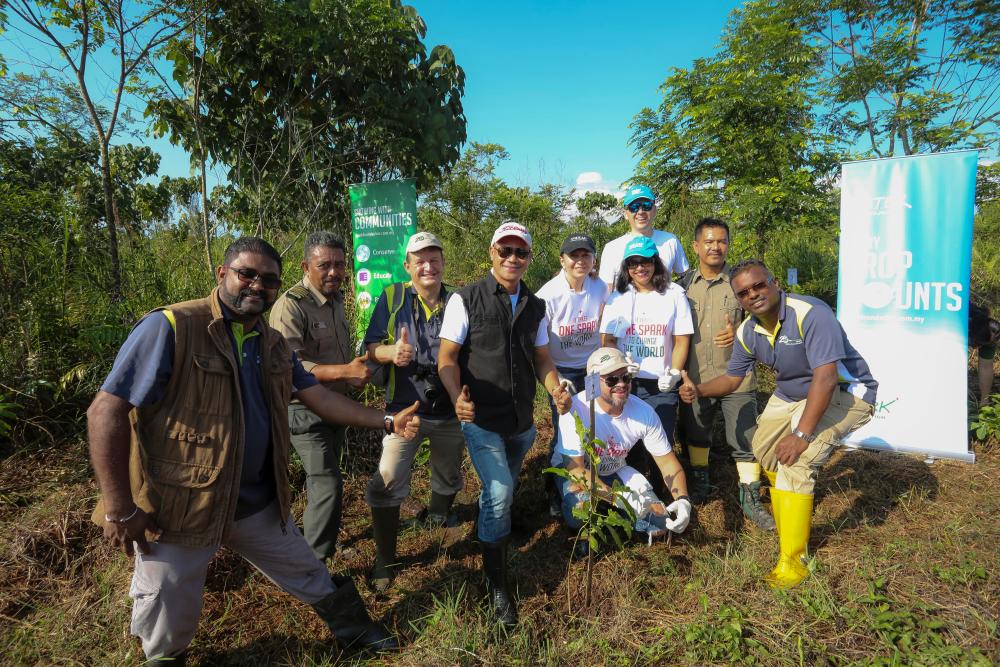AS part of SPARK Foundation’s second year Water Stewardship Agenda 2018-2020, the foundation will be supporting the Global Environment Centre (GEC) in its work with the Selangor Forestry Department.
This will involve two high-impact initiatives at the Raja Musa Forest Reserve in Batang Berjuntai, Selangor; reforesting one hectare of degraded peatland and constructing a 300-meter clay dyke. These measures are expected to help store up to 200 million litres of water annually.
As the Raja Musa peat swamp forest doubles as a water storage and supply for surrounding communities, and as a conservation area and source of livelihood for the same communities, Selangor State Forestry Department Director Datuk Haji Dr Mohd Puat B. Dahlan stressed the importance of preserving peat swamp forests.
“However, (its) function is lost when the land is degraded due to weather conditions and forest fire. Protection and rehabilitation of peatland will sustain our water supply in the long run, besides functioning as an efficient carbon storage to regulate earth temperature. Reforesting one hectare of peatland offsets 2,000 tonnes of soil carbon, which is equivalent to the annual emissions from 1,400 cars” he said.
SPARK Foundation Trustee Renuka Indrarajah pointed out the urgent need for all stakeholders to step-up efforts in protecting water resources to ensure availability and accessibility of clean water, as it is in line with the 2030 United Nations Sustainable Development Goals.
During the tree-planting programme, SPARK Foundation additionally introduced the proposed clay dyke that will be constructed in the Raja Musa Forest Reserve in the third quarter of 2019. Clay dyke is an innovative method to reduce surface and subsurface water seepages that will support water retention and rehabilitation efforts.
Director of the Global Environment Centre and board member of the National Water Services Commission (SPAN) Faizal Parish said corporates must take more seriously the recent warning by the United Nations-linked International Resource Panel (IRP) that up to 50% of the global population will live in water stressed areas by 2030, if current levels of water consumption and pollution growth rate continues.
“They must start managing their environmental performance through high-impact projects like the SPARK Foundation Water Stewardship Agenda. 2030 is only 11 years away and urgent action is needed to address and prevent these impacts,” he said.













